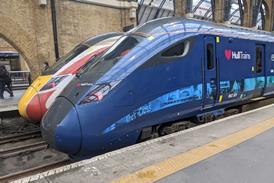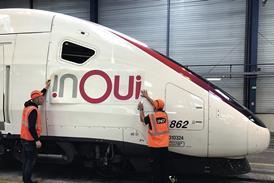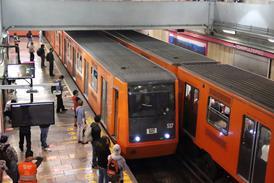In a time when digital transformation continues to have a profound impact on every aspect of our lives, Open Banking presents a unique opportunity to reshape the way we perceive and use our public transport systems, including rail and metro.

Open Banking fundamentally redefines the traditional banking ecosystem, relying on networks of financial institutions’ data through agreed digital connections to create a more interconnected and transparent financial environment. In public transport, this could translate into more personalised pricing structures and enhanced service offerings, making daily commutes not only more affordable but also more adaptable to individual needs.
However, its successful implementation hinges on the public’s disposition to openly share their personal data. While this may sound controversial to some – 39% of UK consumers are somewhat unwilling to share personal information with online companies – data sharing presents undeniable advantages for enhancing user experiences.

The UK’s role
According to KPMG, the UK remains the largest market in Europe for fintech innovation and investment. As such, the UK offers a robust framework for the integration of Open Banking which could be exploited by various sectors, including mobility.
Transport for London’s introduction of contactless card payments on all modes ten years ago is an excellent illustration of how innovation and specifically open payments can extend beyond traditional frameworks, enhancing mobility for millions of Londoners and visitors by simplifying access and reducing costs.
(Data) sharing is caring
The voluntary exchange of personal data is the lynchpin of a more connected and user-focused mobility experience. By having access to customers’ journey data, transportation providers can leverage this information to streamline operations and improve services.

When customers share a subset of their banking transactions, they can provide transport operators with real-time data on their location and potential travel routes. Aggregating this data offers broader, macro-level insights that could further improve transportation planning and operations.
By leveraging machine learning and analytics, transport capacity in rail and metro services can be pre-emptively adjusted to align more closely with actual demand. Analysing active transactions in specific areas can also serve as a precursor to detecting emerging patterns in passenger journeys, allowing operators to anticipate and respond to shifts in travel trends more effectively.
Additionally, integrating Open Banking with these personalised services means that payments can also become more seamless, allowing smoother transitions between transport modes without the need for multiple payment processes.
Delivering this level of customised travel experience depends on the ability to analyse and understand user habits and preferences in detail. Having access to accurate customer data allows transportation services to deploy resources more effectively, predicting high demand areas and times, and adjusting service availability accordingly.
The end result is a more tailored, efficient, and satisfying travel experience that goes beyond simple convenience, offering a genuinely adaptive transportation ecosystem that responds in real-time to the needs of its users.
Can data protection hinder tech innovation?
The convergence of identity verification and payment systems represents a significant development in the context of Open Banking, and can prove to be a potent catalyst for its adoption. Yet despite the potential benefits, the issue of data privacy looms large. Perhaps the issue doesn’t stem from a resistance to share data, but a concern over how much data is shared and how it is applied.
Trust and security are crucial factors for guaranteeing consumer buy-in. In the UK, concerns around identity theft and data breaches are particularly acute. These fears are in part fuelled by reports stating that half of businesses (50%) and around a third of charities (32%) have experienced some form of cyber security breach or attack in the last 12 months.
Such figures can have a major effect on consumer confidence when asked to grant more access to their personal data, which can in turn obstruct the broader adoption of new payment technologies in public transport.
To successfully implement Open Banking in mobility services, it is imperative to strike a delicate balance between innovation and data protection. This can be achieved through a proactive approach, whereby tech innovators engage with regulators and stakeholders to ensure robust frameworks are put in place when introducing an ambitious integrated Open Banking system. A solid foundation of trust can be put in place by prioritising transparency in how data is used and protected, encouraging wider acceptance of Open Banking technologies.

It’s also worth noting that people are already using Open Banking frameworks. For example, most mobile banking applications allow the connection of other accounts -holding a current account with Lloyds will allow users to see their credit card account with Barclays or Amex, if they so wish.
When users feel confident that their identity and financial data are being handled in a secure and transparent manner, they are more likely to embrace innovative solutions built on data sharing.
A path to a brighter future
Looking beyond the challenges around data sharing, the integration of Open Banking into public transport systems has profound implications for social mobility. By making rail and metro travel more accessible and affordable, Open Banking can play a pivotal role in breaking down barriers that many individuals face due to economic constraints. Additionally, linking Open Banking to mobility, at least conceptually, could be a catalyst to address financial inclusion by bringing under-banked or un-banked into the financial system.
Other innovations such as programmable money could bring further potential. Let’s take for example a young person, for whom pursuing higher education or job prospects in a neighbouring city may seem unfeasible for both financial and logistical reasons. These obstacles are more easily overcome with Open Banking as an enabler for programmable money, combined with access to a smart network that provides the most time-efficient and cost-effective rail and metro routes based on individual data.
For the student in question, such a network would open more opportunities for education and employment. The potential for long-term societal impact is immense, offering a path towards a more inclusive and equitable transport system and society.

On track
As we navigate the complexities of digital transformation, the integration of Open Banking in mobility presents a unique opportunity to redefine urban transport. It promises fairness, increased transparency, and greater efficiency in how we manage and pay for travel.
Enhancing mobility experiences through Open Banking allows for personalised payment services, making rail and metro travel more accessible with data-driven custom services and pricing. This approach allows operators to efficiently target services based on collective user patterns, reducing ownership costs and potentially improving pricing.
However, the success of this integration is contingent upon an ability to manage data privacy concerns responsibly, nurturing consumer trust. By continuing to drive dialogue and collaboration among policymakers, industry leaders, and the public, we can harness the full potential of Open Banking to create a more connected and equitable future for all.
Click here to find out more information on Worldline’s ticketing and payment services.

















